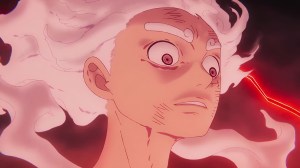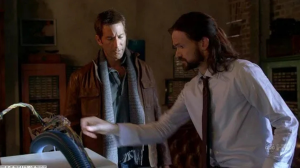Television has a way of making us care more than any other medium. We invite characters into our living rooms week after week, sometimes for years, watching them grow, struggle, succeed, and fail. We get invested in their journeys, their relationships, and their triumphs. They start to feel like people we know. So when a show decides to pull the plug on someone we’ve spent countless hours rooting for, it hits differently than a death in a two-hour movie. It feels personal, igniting fierce debates online, flooding social media with collective grief, and sometimes, leaving a genuine ache that takes time to heal. As a result, TV deaths can often be devastating.
Videos by ComicBook.com
Deciding which TV deaths hit the hardest is tough, especially since some shows seem to specialize in gut punches (looking at you, Game of Thrones). To keep things varied, we’re sticking to a strict rule: only one major death event per series qualifies for this list. Here’s our pick for the TV deaths that devastated us the most. Spoilers for that show you’ve been meaning to watch may follow.
10) Joyce Summers (Buffy the Vampire Slayer)
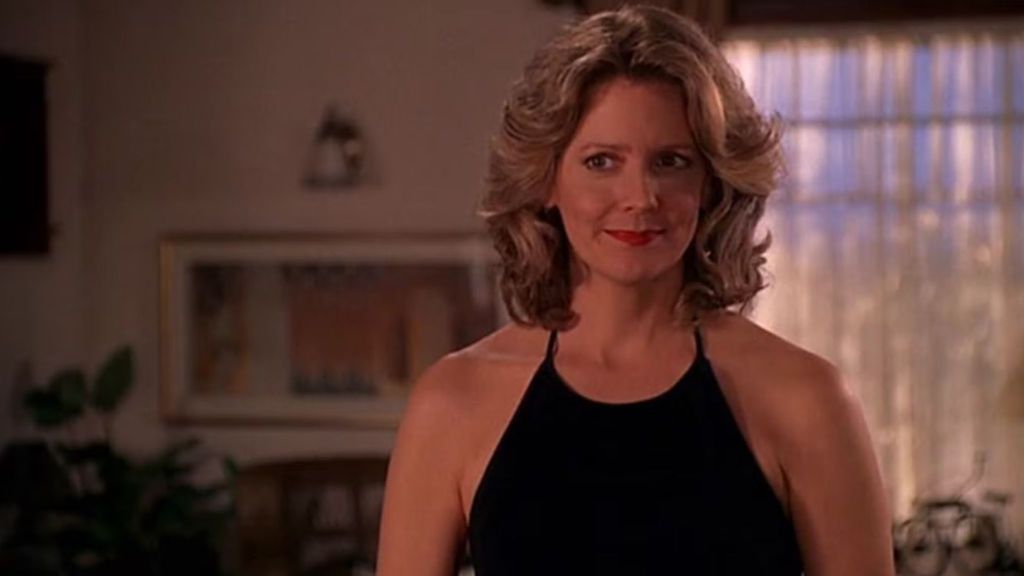
Joyce Summers (Kristine Sutherland) provided something essential in Sunnydale’s chaos: she was Buffy’s (Sarah Michelle Gellar) mom, the Slayer’s connection to normalcy. In the chaotic world of Buffy the Vampire Slayer, filled with vampires, demons, and apocalypses, Joyce represented home and unwavering maternal love. She was the anchor keeping the Slayer grounded, the one person Buffy could turn to who wasn’t part of the supernatural fray. Her acceptance of Buffy’s calling, her warmth, and her quiet strength made her an essential part of the show’s heart, someone viewers cherished as much as the Scooby Gang did. That’s precisely why her death in the episode “The Body” remains so profoundly affecting.
There was no monster, no final battle, just the sudden, stark reality of Buffy finding her mother lifeless on the couch, felled by a brain aneurysm. The episode strips away all fantasy elements, focusing with excruciating detail on the immediate, awkward, and numbing aftermath of discovering a loved one gone. It captures the raw shock and disbelief, the phone calls, the paramedics — the mundane horror of unexpected loss. For a show built on fighting the forces of darkness, Joyce’s utterly ordinary death delivered a gut punch, reminding Buffy and the audience that some tragedies within Buffy the Vampire Slayer are tragically human and unavoidable.
9) Adriana La Cerva (The Sopranos)
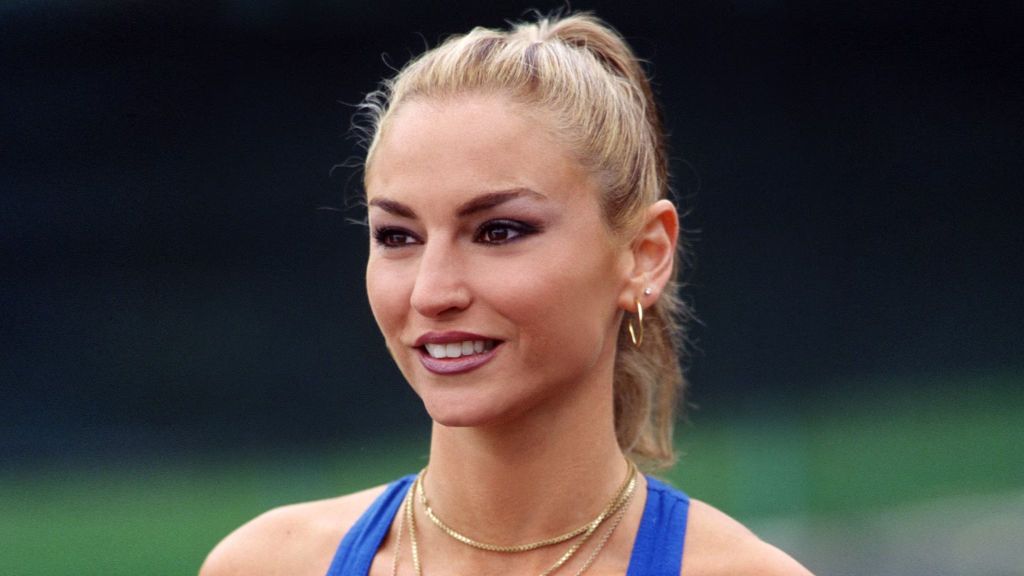
Adriana La Cerva (Drea de Matteo) started as Christopher Moltisanti’s (Michael Imperioli) fiery girlfriend, navigating the treacherous periphery of Tony Soprano’s (James Gandolfini) world with a mix of ambition and naivete. Pulled into the life through her love for Christopher, she dreamed of legitimacy but became increasingly entangled in the family’s criminal activities featured in The Sopranos. Her vulnerability grew when the FBI targeted her, pressuring her into becoming an informant, a position that essentially signed her death warrant. Still, Adriana represented a flicker of hope for escape, clinging desperately to the belief that Christopher’s love could save her. As such, her demise is a masterclass in dread and betrayal.
After tearfully confessing her FBI entanglement to Christopher, hoping he’ll run away with her, he chooses loyalty to Tony. The sequence where Silvio Dante (Steven Van Zandt), Tony’s consigliere, drives Adriana to a remote location under the guise of taking her to Christopher is agonizing. Her dawning realization that she’s been betrayed, followed by her desperate attempt to crawl away before Silvio executes her off-screen, is chilling. Adriana’s death served as a brutal confirmation that trust is fatal, innocence is exploited, and there’s no escaping the life once you’re truly in it, a core theme explored throughout The Sopranos.
8) Charlie Pace (Lost)

Charlie Pace (Dominic Monaghan) arrived on the Island of Lost as a mess, a faded rock star battling heroin addiction, haunted by his past failures. But among the survivors of Oceanic Flight 815, he found a chance at redemption. His journey was defined by his struggle against his demons, his loyalty to his fellow castaways, particularly Claire Littleton (Emilie de Ravin) and her baby Aaron, and his gradual transformation into a dependable, even heroic, figure. He represented the possibility of change and finding purpose in the most unlikely circumstances, making his eventual fate all the more poignant.
His death unfolded as a conscious act of sacrifice foretold by Desmond Hume’s (Henry Ian Cusick) flashes. Knowing his demise was necessary to ensure the rescue of his friends, Charlie willingly swam down to the underwater Dharma station, the Looking Glass. He successfully blocked a signal jammer but became trapped as the room flooded. In his final moments, he managed to warn Desmond about the freighter crew with the iconic message “Not Penny’s Boat” scrawled on his hand before drowning. Charlie’s end was the culmination of his redemption arc, a selfless act ensuring the survival of those he loved. It proved heroic, heartbreaking, and remains one of Lost‘s most defining moments.
7) Poussey Washington (Orange Is the New Black)
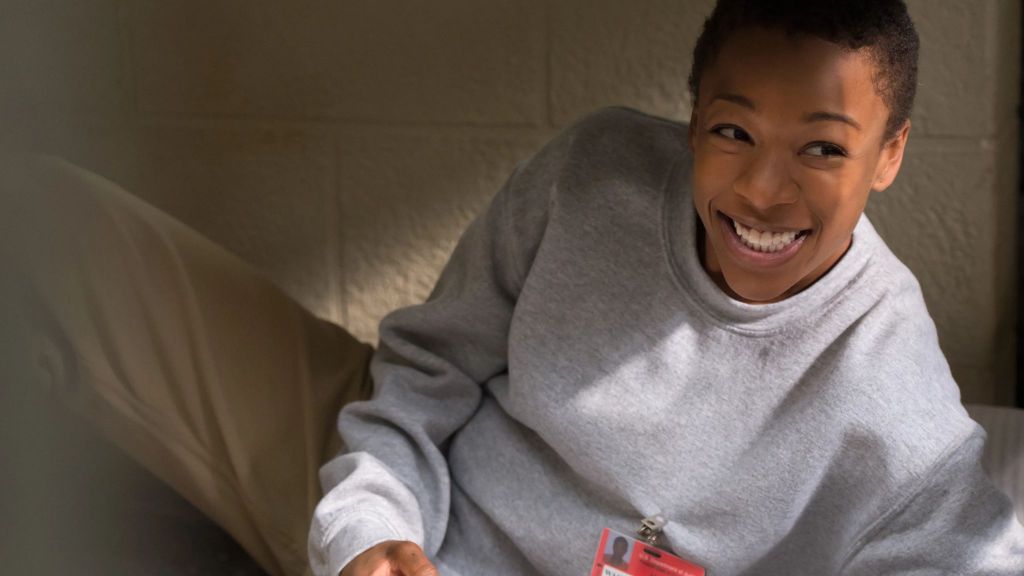
Inside the often bleak and brutal walls of Orange Is the New Black‘s Litchfield Penitentiary, Poussey Washington (Samira Wiley) was a ray of light. Intelligent, funny, fiercely loyal to her friends, and fundamentally decent, Poussey represented hope and humanity within a dehumanizing system. She had plans for the future, dreams beyond the prison gates, and a gentle spirit that made her a favorite among inmates and viewers alike. Her warmth and inherent goodness made her feel like the group’s soul, someone you desperately wanted to see make it out okay.
[RELATED: 10 Best Netflix Shows to Binge Right Now]
Poussey’s death was shocking, senseless, and utterly heartbreaking, serving as a pivotal moment for Orange Is the New Black. During a peaceful protest in the cafeteria that spiraled out of control due to inexperienced guards, Poussey was accidentally suffocated. CO Baxter Bayley (Alan Aisenberg), while trying to restrain a frantic Suzanne “Crazy Eyes” Warren (Uzo Aduba), pinned Poussey down with his knee on her back, crushing the air out of her small frame. The quiet horror of her death, mirroring real-world tragedies like that of Eric Garner, felt devastating. The loss of such a beloved character provided a stark indictment of systemic failure, inadequate training, and the casual disregard for inmates’ lives, sparking a season-long riot fueled by grief and rage.
6) Rita Morgan (Dexter)
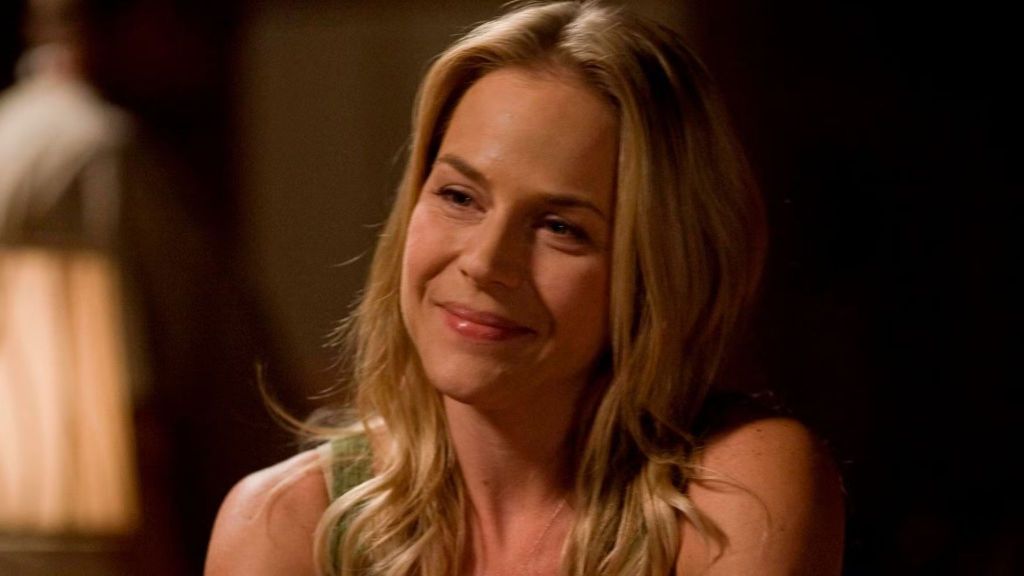
Rita Bennett (Julie Benz) — later Morgan — was Dexter Morgan’s (Michael C. Hall) anchor to normalcy, the embodiment of the life he pretended to want and perhaps, somewhere deep down, actually craved. Initially drawn to her perceived damage, Dexter saw her and her children as the perfect cover for his life as a serial killer. However, over time, a genuine connection formed within Dexter‘s narrative. Rita provided Dexter with love, stability, and a family, representing his best chance at containing his Dark Passenger and experiencing something resembling human happiness.
The Season 4 finale of Dexter delivered one of the most stunning and horrifying twists in television history. After finally dispatching the menacing Trinity Killer (John Lithgow), Dexter returns home, believing the threat is neutralized. Instead, he finds his infant son Harrison sitting in a pool of blood on the bathroom floor, mirroring Dexter’s own origin story. In the bathtub lies Rita, murdered by Trinity just hours before Dexter killed him. The shock was immense, ripping away Dexter’s carefully constructed facade of an everyday life. Rita’s brutal death resonated deeply because viewers loved her, and it acted as a terrifying confirmation that Dexter’s darkness inevitably consumes everything he touches, leaving tragedy in its wake.
5) Hank Schrader (Breaking Bad)
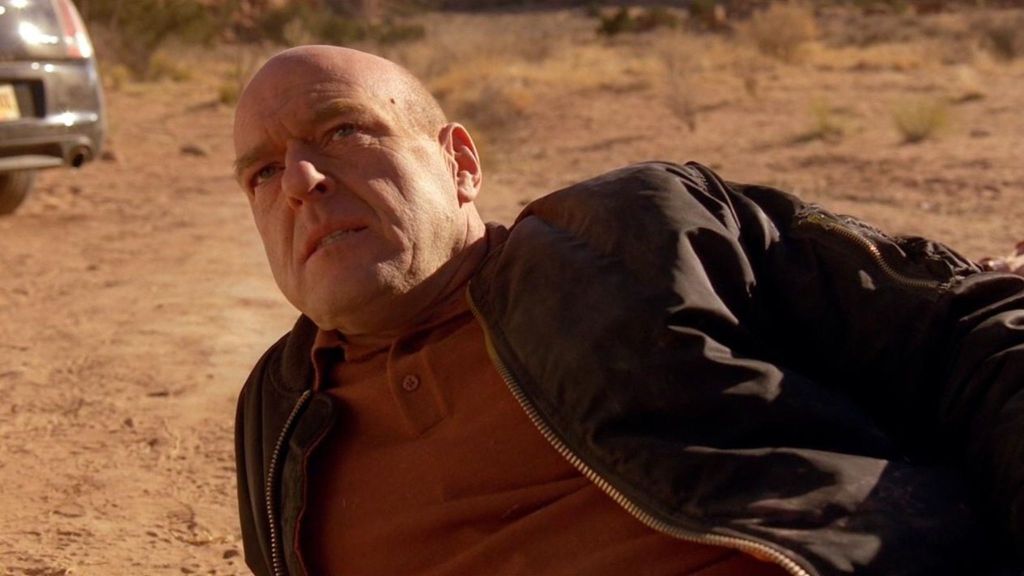
Hank Schrader (Dean Norris) represented the relentless law that Walter White (Bryan Cranston) defied in Breaking Bad. His role as Walt’s brother-in-law complicated things, but Hank evolved into a complex and deeply moral character driven by his own code. Initially presented as somewhat boisterous and occasionally crude, his relentless pursuit of the mysterious Heisenberg, unaware it was his own family member, became a central source of tension. Plus, Hank’s dedication to his job, his moments of vulnerability after traumatic experiences, and his ultimate discovery of Walt’s secret made him a tragic figure caught in his brother-in-law’s destructive wake.
Hank’s death in the searing desert landscape during the episode “Ozymandias” was the culmination of Walt’s catastrophic choices. Cornered by Jack Welker (Michael Bowen) and his neo-Nazi crew, Hank faces death with unflinching courage. Despite Walt’s desperate pleas, Hank refuses to beg or compromise his principles, telling Jack, “Do what you’re gonna do,” before being executed with a single gunshot. Witnessing the death of this fundamentally good man, who only wanted to do his job and protect his family, was gut-wrenching for Breaking Bad viewers. Hank’s demise signified the point of no return for Walt, the moment his empire truly crumbled, leaving only wreckage and the devastating loss of a true hero.
4) Joel Miller (The Last of Us)
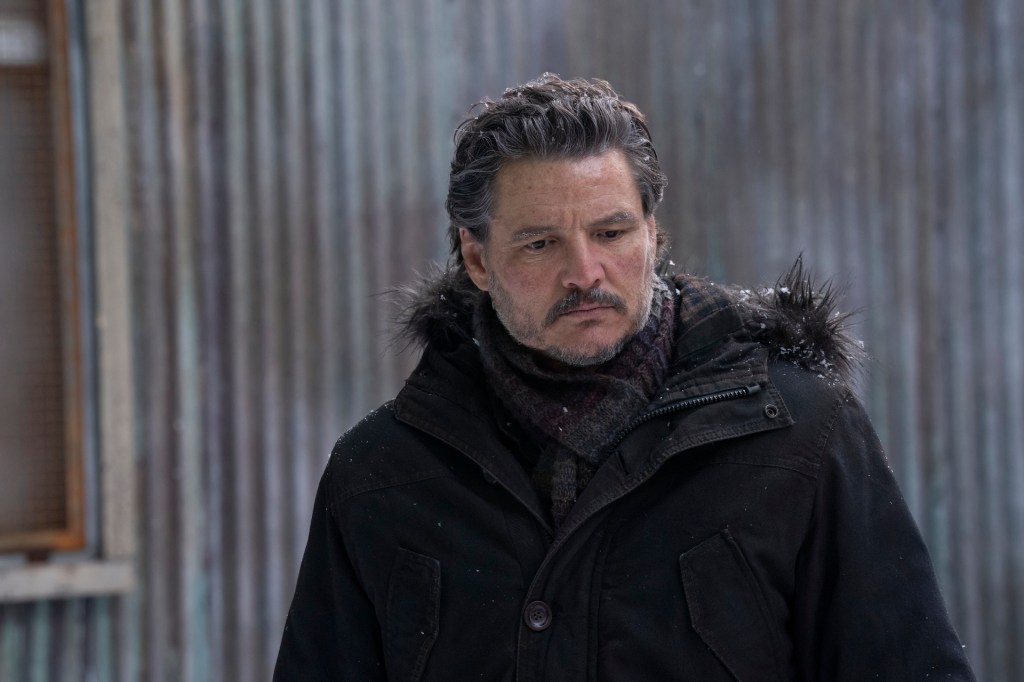
Joel Miller (Pedro Pascal) was the hardened heart of The Last of Us‘ first season. A survivor scarred by the loss of his daughter in the initial outbreak, Joel’s journey escorting the immune Ellie Williams (Bella Ramsey) across a post-apocalyptic America formed the show’s emotional core. Viewers watched his guarded exterior slowly crack as he formed a powerful surrogate father bond with Ellie. Furthermore, his brutal efficiency in protecting her cemented Joel as a complex and deeply compelling protagonist. This culminated in his violent rampage through the Firefly hospital to save Ellie’s life, an act that also involved killing the potential surgeon, who happened to be Abby Anderson’s (Kaitlyn Dever) father.
The consequences of that hospital massacre arrive with shocking brutality early in The Last of Us‘ second season. Ambushed and captured, Joel listens to Abby explaining the reasons for his dire situation before she unleashes a torrent of violence, beating him relentlessly with a golf club. The sheer cruelty of Joel’s death, happening to a character viewers had invested so much in, played by the immensely popular Pascal, is staggering. To make matters worse, Ellie arrives at the scene just to witness the final blow, as Abby pierces Joel’s neck with a broken club. The loss of a beloved lead combined with the horrific nature of his end and its placement so early in the story left audiences reeling, establishing the season’s dark trajectory.
3) Opie Winston (Sons of Anarchy)
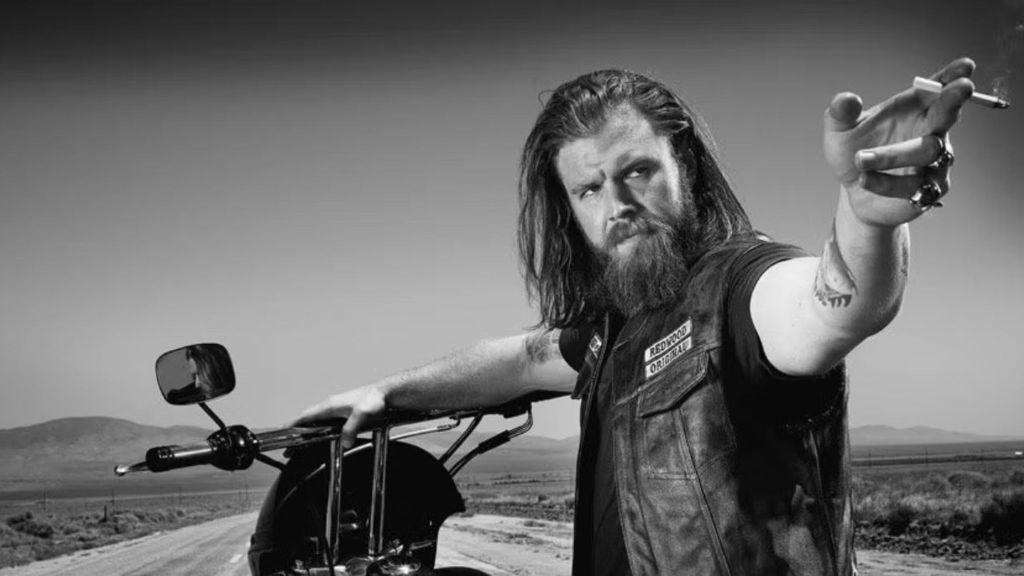
Harry “Opie” Winston (Ryan Hurst) was the heart and soul of SAMCRO for many fans, Jax Teller’s (Charlie Hunnam) best friend since childhood, and a figure defined by loyalty. Opie endured unimaginable pain throughout Sons of Anarchy, most notably the brutal murder of his wife, Donna (Sprague Grayden), orchestrated by Clay Morrow (Ron Perlman). This loss haunted him, leaving him disillusioned and adrift. Yet, his loyalty to Jax and the club remained, making his ultimate fate even more crushing for viewers who had suffered alongside him.
His end came as a brutal act of self-sacrifice. While Opie, Jax, and other SAMCRO members were imprisoned, the ruthless Damon Pope (Harold Perrineau) demanded retribution for his loss — one Son had to die inside. Before Jax can offer himself to save his friends, Opie, already broken by grief and betrayal, jumps ahead and headbutts a guard, ensuring he would be the one selected for death. Forced into a room alone against multiple inmates, Opie fought valiantly before being savagely beaten to death with a pipe, all while Jax, Tig (Kim Coates), and Chibs (Tommy Flanagan) watched helplessly through a glass window, their screams unheard. Opie’s death left a void in the show that never truly healed.
2) Glenn Rhee (The Walking Dead)
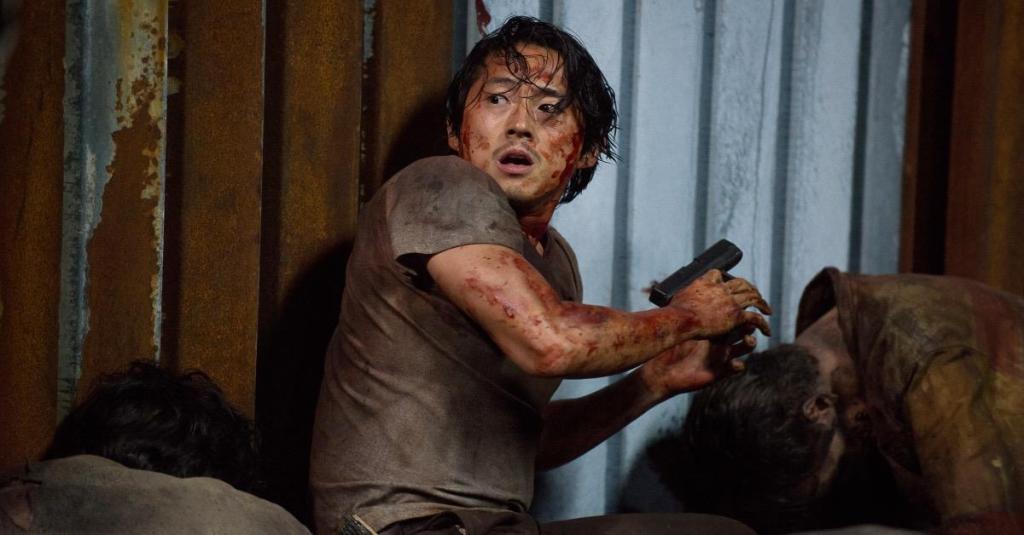
From the moment his voice crackled over the radio in Season 1, Glenn Rhee (Steven Yeun) became an indispensable part of The Walking Dead. Starting as a resourceful pizza delivery boy navigating the apocalypse, Glenn evolved into a brave leader, a loving husband to Maggie Greene (Lauren Cohan), and the unwavering moral compass of the group. In a world constantly descending into brutality, Glenn represented hope, resilience, and the enduring power of humanity. He was resourceful, kind, and consistently put others before himself, making him one of the most universally beloved characters on the show. That’s why his death at the hands of Negan (Jeffrey Dean Morgan) remains one of the most controversial and traumatizing moments in the history of The Walking Dead.
After Negan brutally executed Abraham Ford (Michael Cudlitz), Daryl Dixon (Norman Reedus) lashed out, prompting Negan to make another horrifying example. In front of a kneeling, captive group including his pregnant wife Maggie, Glenn was savagely beaten to death with Negan’s barbed-wire baseball bat, Lucille. The depiction was graphically violent and drawn out, lingering on the horrific details. Killing such a foundational character, a symbol of hope, in such an excessively cruel manner felt like a violation, leaving many viewers feeling sickened and betrayed, marking a dark turning point for the series.
1) The Red Wedding (Game of Thrones)
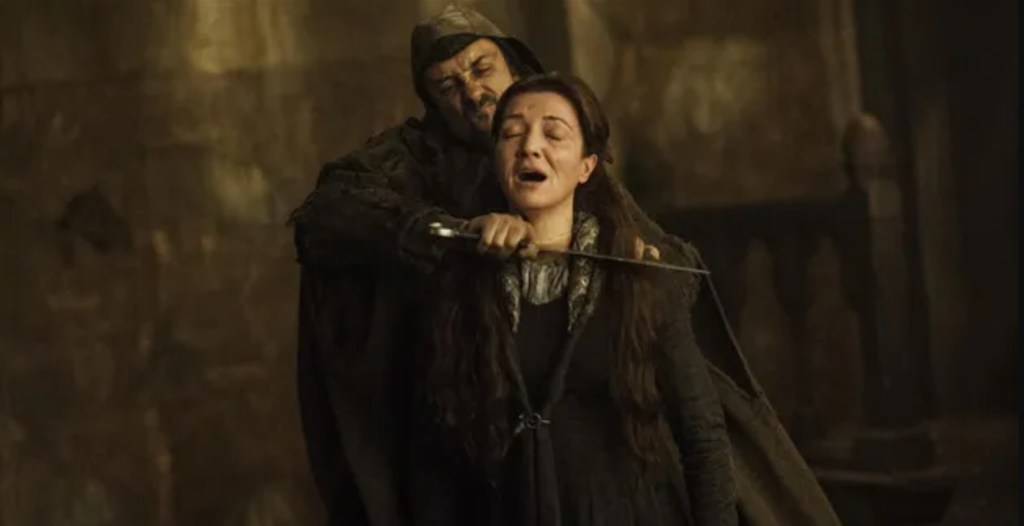
Few moments in television history have elicited such widespread shock, horror, and collective grief as The Red Wedding, a massacre that fundamentally altered the course of Game of Thrones and cemented its reputation for ruthless unpredictability. Robb Stark (Richard Madden), the young King in the North seeking vengeance for his father, seemed poised to challenge the Lannisters. His campaign, fueled by early victories and righteous anger, represented the primary hope for many viewers seeking justice in Westeros. He was the protagonist leading the charge against the villains. Then came the wedding feast at The Twins, hosted by the slighted Walder Frey (David Bradley).
In a horrifying betrayal of guest right, the Freys, allied with the Boltons and Lannisters, sprung their trap. The doors were barred, the musicians revealed crossbows, and a slaughter ensued. Robb, his pregnant wife Talisa (Oona Chaplin) who was stabbed repeatedly in the stomach, his mother Catelyn Stark (Michelle Fairley) who watched her son die before her own throat was slit, his direwolf, and countless loyal bannermen were brutally murdered. The sheer scale of the betrayal, the graphic violence, and the abrupt annihilation of the Starks’ cause left Game of Thrones audiences utterly stunned and devastated. It was a narrative gutting, proving no one was safe and fundamentally changing the game.
Which TV death hit you the hardest? Let us know in the comments below!




